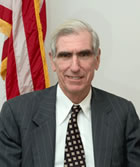Talk:NFIB's Legal Arm
The National Federation of Independent Business (NFIB) is a lobbying group that calls itself "the voice of small business."[1] However, the group has been shown to lobby on issues that favor large corporate interests and run counter to the interests of small businesses.[2][3] NFIB is best known for its legal attack on the Affordable Care Act ("Obamacare") and for spearheading the opposition to President Clinton's health care reform package in 1993.
NFIB has a legal arm called the NFIB Small Business Legal Center (SBLC). The stated aim is to assist businesses in litigation; it is "not a legal defense fund".[4] The SBLC spearheads the NFIB's legal assault on the Affordable Care Act ("Obamacare"); it is also involved in "lobby[ing] judges" to further the NFIB agenda of depriving workers of their rights and benefits.
It is one of its three 501(c)(3) foundation arms.[5] Formed in January 1994 as the NFIB Legal Foundation, the litigation arm took years to get off the ground, possibly because of funding and turf issues. (The U.S. Chamber of Commerce has a well-funded litigation arm, the Institute for Legal Reform, which had a budget of $42.5 million in 2010; and the Washington Legal Foundation, with a 2009 budget of $2.7 million, has played a leading role in antiregulatory strategic litigation for years).[6]
NFIB Battles Legal Protections for Workers, Women and Whistleblowers
The first president of the NFIB Legal Foundation, Jack Faris, laid out the group's key initial targets -- not concerns about anti-trust issues and big business concentration, NFIB's original focus, but "inequities in the Americans with Disabilities Act regulations, Environmental Protection Agency clean air rules, and Occupational Safety and Health Administration requirements."[7] Its first case in 2000 was an effort to block a Clean Water Act rule issued by the Army Corps of Engineers.[8]
Later in 2000 the NFIB Legal Foundation joined a lawsuit challenging a regulation issued by OSHA designed to reduce repetitive-motion stress injuries.[9] The case became moot in 2001 when Congress passed legislation repealing the OSHA ergonomics rule. The NFIB Legal Foundation claimed credit for having forced the repeal.[10]
- Wal-Mart Law: Gaudio also praised a federal court's overturning of Maryland's so-called Wal-Mart Law, which sought to make large employers in the state pay a fair share of their low-wage workers' state-funded medical costs.[11]
- Sexual Harassment: In 2006, the NFIB Legal Foundation filed an amicus brief in the Supreme Court challenging a federal appeals court's ruling on what constitutes actionable retaliation in a sexual harassment case under Title VII of the Civil Rights Act. The brief claimed that the court's ruling upholding the retaliation claim jeopardized legitimate employer practices.[12] NFIB Legal Foundation filed the amicus brief jointly with Proskauer Rose.
- Lily Ledbetter: The following year the NFIB Legal Foundation applauded the Supreme Court's decision denying Lily Ledbetter the right to sue Goodyear for pay discrimination because her case was not filed within 180 days after the first discriminatory paycheck, even though she had no way of knowing then that she was paid less than her male counterparts.[13]
- Americans with Disabilities Act: In 2007 the NFIB Legal Foundation's senior executive counsel, Elizabeth Gaudio denounced what she called "predatory plaintiffs using the [Americans with Disabilities Act] to extort small businesses in 'drive-by' lawsuits."[14] Gaudio and NFIB Legal Foundation executive director Karen Harned also wrote an article for the journal of the Federalist Society's practice group offering court-based strategies for restricting litigation under the ADA.[15]
- Wal-Mart Law: Gaudio also praised a federal court's overturning of Maryland's so-called Wal-Mart Law, which sought to make large employers in the state pay a fair share of their low-wage workers' state-funded medical costs.[16]
- Right to Work: That year the NFIB Legal Foundation also submitted a friend-of-the-court brief in a major Washington state case filed by the National Right to Work Foundation challenging the ability of unions to use non-member dues for political purposes without first obtaining their consent. The amicus brief was prepared for NFIBLF by James Bopp, Jr., who two months later filed a landmark case for Citizens United that overturned a century of precedent in election finance law.[17]
- Whistleblowers: In 2013, the NFIB Legal Foundation submitted a friend-of-the-court brief in a court case involving two employees who were fired after raising concerns about securities fraud at Fidelity Investments. In the amicus brief, the Legal Foundation argued that whistleblowers working for private companies were not covered by the Sarbanes-Oxley Act, which provides "whistleblower protection for employees of publicly traded companies.[18] In March 2014, the Supreme Court delivered the opinion that "whistleblower protection includes employees of a public company's private contractors and subcontractors.[19]
- Obamacare Attacks: In 2014, the NFIB Legal Foundation (together with the Cato Institute and the Pacific Research Institute) filed a friend-of-the-court brief in the suit Halbig v. Sibelius in support of the plaintiff. Jacqueline Halbig, a former policy adviser to the Department of Health and Human Services under George W. Bush., is intent on overturning the whole Affordable Care Act by attacking a single phrase in the law in what Mother Jones describes as "clearly a political attack".[20]
Funding
From 2003-2004, NFIB's Small Business Legal Center received $88,000 in funding from the Koch-controlled Claude R. Lambe Foundation.[21] SBLC also received $100,000 from the Lynde and Harry Bradley Foundation, the leading foundation funder of the right-wing think tank infrastructure. The donation came in the run-up to the fall 2010 congressional elections and just as SBLC's healthcare litigation was ramping up.[22]
The budget for SBLC has grown from $200,000 in 2000[23] to over $2.2 million in 2010.[24] It more than doubled between 2009, when it was $967,803,[25] and 2010, when it surged to $2,202,992.[24] A major increase in the group's expenditures consisted of legal fees of $1,073,242 paid to Baker Hostetler in 2010;[26] that firm represented NFIB and 26 states in their federal lawsuit challenging the constitutionality of the Affordable Care Act.
On its 2010 tax return, SBLC reported receiving $282,548 from a related organization (presumably NFIB Inc.) and $1,875,892 in contributions, gifts and grants.[27] The previous year's grants total was $559,573.[25] The additional amount in 2010 more than covers SBLC's legal fees that year to Baker Hostetler. It is not clear who provided the extra funding to support the group's legal expenses in its challenge to the healthcare law up through the Appeals court and Supreme Court, and to pay for the legal work being done by Jones Day attorneys Michael A. Carvin and Gregory Katsas as they prepared for and argued the case before the Supreme Court in March 2012.
President Dan Danner told the Wall Street Journal that the healthcare litigation cost NFIB $2.9 million in 2010 alone, with about $1.6 million coming from "'contributed services,' referring to an agreement with an outside law firm to handle the case."[28]
As a 501(c)(3), SBLC is not required to disclose the source of its funding. The group has so far refused to disclose the source(s) of the additional funding for the healthcare litigation.
Questions have also arisen about the propriety of SBLC's paying for most of the litigation involving 26 states. "My concern is if it's a lawsuit on behalf of the people of Florida, then I would believe it should be the people of Florida footing the bill," state Rep. Mark Pafford, D-West Palm Beach, told the Palm Beach Post. "When you have an outside party paying, then every aspect of the AG's office might be up for sale. This type of thing raises all kind of red flags."
"I'm not sure most voters understand that a lawsuit by their states is being funded by an ideological organization with an issue ax to grind," Ethan Rome, executive director of Health Care for America Now, told the newspaper. "In this case there appears to a serious perversion of the process."[29]
More recently, the lion's share of the funding has come from Donors Trust, a secretive fund used to distribute anonymous donations from right-wing billionaires, such as the Koch brothers. From 2010-2011, the fund contributed $3.4 million to the SBLC.[30]
- ↑ NFIB, NFIB, organizational website, accessed September 20, 2012.
- ↑ Jeffrey H. Birnbaum, A Quiet Revolution in Business Lobbying, The Washington Post, February 5, 2005.
- ↑ American Sustainable Business Council, Main Street Alliance, and Small Business Majority, Opinion Survey: Small Business Owners’ Opinions on Regulations and Job Creation, February 1, 2012.
- ↑ NFIB, About the NFIB Legal Center, organizational website, accessed June 27, 2014.
- ↑ NFIB Small Business Legal Center, Form 990 (Part 1 and Part 2), organizational IRS filing, 2010.
- ↑ U.S. Chamber of Commerce Institute for Legal Reform, 2010 IRS Form 990, p. 1; Washington Legal Foundation, 2009 IRS Form 990, p. 1.
- ↑ Jack Faris, "Small Business Gets A Lawyer," Treasure Coast Business Journal, May 1, 2000, accessible by subscription via Nexis.com, accessed September 2012.
- ↑ "Senator Bond Applauds NFIB Legal Foundation's First Lawsuit," U.S. Newswire, June 29, 2000.
- ↑ Jonathan Riskind, "Brown to Fight Mexican Truck Ruling," Crain's Cleveland Business, December 11, 2000, accessible by subscription via Highbeam.com, accessed September 2012.
- ↑ NFIB, "NFIB v. OSHA-NFIB Forces Repeal of Costly Ergonomics Rule," organizational website, accessed September 2012.
- ↑ NFIB, "Victory for Small Business: Court Rejects Maryland 'Wal-Mart' Law," organizational website, accessed September 2012.
- ↑ "Proskauer Rose Files Amicus Brief in Major Employment Discrimination Case Now before the U.S. Supreme Court," Business Wire, February 14, 2006.
- ↑ Miles Moore, "High Court Favors Goodyear in Pay Discrimination Suit," Tire Business, June 4, 2007, accessible by subscription via Highbeam.com, accessed September 2012.
- ↑ Elizabeth Gaudio, "ADA Tax Breaks Help Small Businesses Stay Accessible," Magic City Morning Star, May 24, 2007.
- ↑ Karen R. Harned and Elizabeth A. Gaudio, "The ADA Opening Doors for the Plaintiff's Bar: How Ambiguities in Title III Inhibit Access, Increase Litigation, and Hurt Business," Engage (Federalist Society), Volume 7, Issue 1, March 2006.
- ↑ NFIB, "Victory for Small Business: Court Rejects Maryland 'Wal-Mart' Law," organizational website, accessed September 2012.
- ↑ See NFIBLF's amicus brief in Davenport v. Washington Education Association, November 8, 2006. The American Legislative Exchange Council also submitted an amicus brief in the case. On Bopp see Stephanie Mencimer, "The Man Behind Citizens United Is Just Getting Started: Meet The Lawyer Who Could Turn Our Elections Upside Down," Mother Jones, May/June 2011.
- ↑ U.S. Government Printing Office, "Public Law 107-204, July 30, 2002", U.S. Government Printing Office, federal law, accessed June 27, 2014.
- ↑ Justice Ginsburg et al., "LAWSON ET AL. v. FMR LLC ET AL, U.S. Supreme Court, March 4, 2014, accessed June 27, 2014.
- ↑ Stephanie Mencimer, "The Latest Legal Attack Against Obamacare," Mother Jones, December 3, 2013, accessed June 27, 2014.
- ↑ Claude R. Lambe Foundation, IRS Forms 990 for 2003 and 2004.
- ↑ Lynde and Harry Bradley Foundation, IRS Form 990, 2010, pp. 72-73.
- ↑ NFIB Small Business Legal Center, Form 990, organizational IRS filing, 2000
- ↑ 24.0 24.1 NFIB Small Business Legal Center, Form 990, Part 1, organizational IRS filing, 2010, p 1
- ↑ 25.0 25.1 NFIB Small Business Legal Center, Form 990, organizational IRS filing, 2009
- ↑ NFIB Small Business Legal Center, 2010 IRS Form 990, part 2, p. 32.
- ↑ NFIB Small Business Legal Center, Form 990, Part 1, organizational IRS filing, 2010, p. 9.
- ↑ Sarah E. Needleman and Angus Loten, "A Small-Business Lobby's Million-Dollar Legal Assault," Wall Street Journal, March 27, 2012.
- ↑ Charles Elmore, "Lobbying Group Picks Up Costs Of Florida's Health-Care Legal Challenge," Palm Beach Post, February 19, 2011.
- ↑ NFIB Small Business Legal Center, Conservative Watch, organizational IRS filings, 2010-2011.



